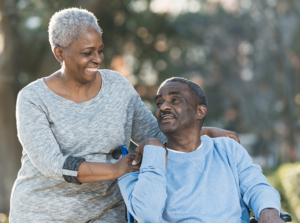Recovering After Heart Surgery
 Proper care after heart surgery will result in a shorter recovery time. Here are some guidelines for care after leaving the hospital.
Proper care after heart surgery will result in a shorter recovery time. Here are some guidelines for care after leaving the hospital.
Care of the Incision
Instructions on care for the incision will be given prior to leaving the hospital. Considerations to be aware of include:
- Keep the incision clean and dry.
- The incision can be gently washed (don’t rub) with soap. Do not use creams or lotions on incisions until they are healed.
- Sometimes a swelling or lump appears at the top of the chest incision, and can take several months to disappear.
- If the incision is healing and dry, quick showers (no longer than 10 minutes) are usually allowed. If there are sutures in the chest, stand with back to the shower spray.
- If showers are not available, quick baths (limited to 10 minutes) may be taken.
- Avoid extreme hot or cold water temperatures, as they can cause faintness.
Pain Relief
At first, there may be some muscle or incision discomfort in the chest area during activity, but there should not be pain in the chest similar to the pain before surgery.
- A prescription for a pain medication will be given before leaving the hospital.
- Itching, tightness and/or numbness along the incision are normal after surgery.
- If the surgery was bypass surgery, and if vein grafts from the legs were used, there may be more pain in the legs than around the chest incision.
- Walking, daily activities, and time will help to lessen leg discomfort and stiffness.
Diet and Sleep
Eating a healthy diet and getting enough rest will help in healing.
- The doctor will instruct if special diet instructions are to be followed. It is common after surgery to have a poor appetite at first. If this is the case, try to eat smaller, more frequent meals. An appetite should return within the first few weeks.
- Many people complain of having trouble sleeping for some time after surgery. Normal sleep patterns should return within a few months.
Swelling
It is possible to return home with some swelling in the legs and feet, especially if vein grafts were taken from the legs. If there is swelling:
- Place feet up higher than heart level when resting. Try this three times a day for one hour to relieve swelling. (Note: recliners do not adequately elevate feet.)
- Do not cross legs while lying in bed or sitting. This puts pressure on the veins under the knees and slows blood flow.
- Hospital support hose may be suggested.
- Walk daily even if legs are swollen.
Activity
Space and pace activities to minimize fatigue. If feeling tired, STOP and rest for a while. Don’t push to finish a task.
- Do not lift objects greater than 20 pounds (the doctor may give a different number if appropriate). Also, do not push or pull heavy objects.
- Climbing steps is fine unless restricted by the doctor. Rest part of the way up or down if tired. Do not climb up and down stairs several times during the day, especially when first arriving home. It is better to plan activities to go downstairs in the morning and back upstairs when it is time for bed.
- Walk daily. The doctor or cardiac rehabilitation specialist will give guidelines for walking upon returning home.
Mental Functioning and Heart Surgery
It is normal to experience cognitive changes after heart surgery and not feel as sharp mentally.
- The entire body, including the brain, was seriously stressed during surgery, especially if the surgery involved stopping the heart and circulating the blood through a heart-lung machine. With time, in most cases, normal cognitive functioning returns.
- Do not force a return to work or performance of mentally stressful tasks, such as balancing a checkbook, in the first couple of weeks after surgery.
- Avoid situations, people, or topics of conversation that create tension or invoke anger. The heart works harder when emotions are unsettled and uncomfortable.
Reasons to Call the Doctor
Report any of the following symptoms to the doctor’s office:
- Temperature above 101 degrees F on more than one occasion or chills for 24 hours.
- Excessive oozing, redness, swelling or tenderness at the incision sites.
- Increased fatigue or shortness of breath.
- Abnormal pain or other symptoms not relieved by medications.
- If the sternum feels like it moves, or it pops or cracks with movement.
Home Care Can Help
Coming home after heart surgery or a stroke can be scary. But an experienced CareWorks Health Services in-home caregiver provides the comfort and security needed to settle in stress-free. Having someone available who understands the specific care requirements and keeps everything running smoothly with errand running and transportation, medication reminders, meal preparation, personal care and housekeeping allows more time to focus on a faster recovery. Contact CareWorks today to find the perfect in-home caregiver for you.
Source: Cleveland Clinic, WebMD, HeartSurgeons.com
Click here to download a printable PDF version of this page.